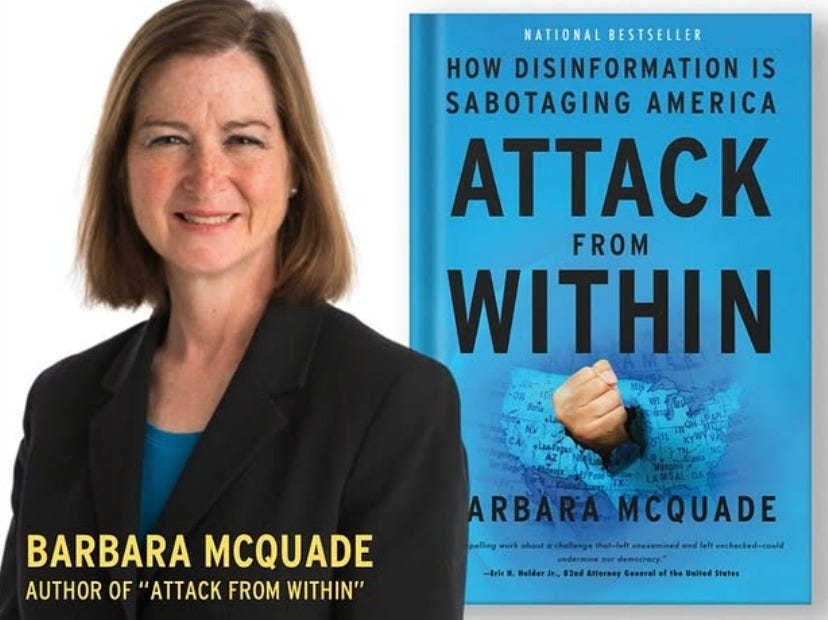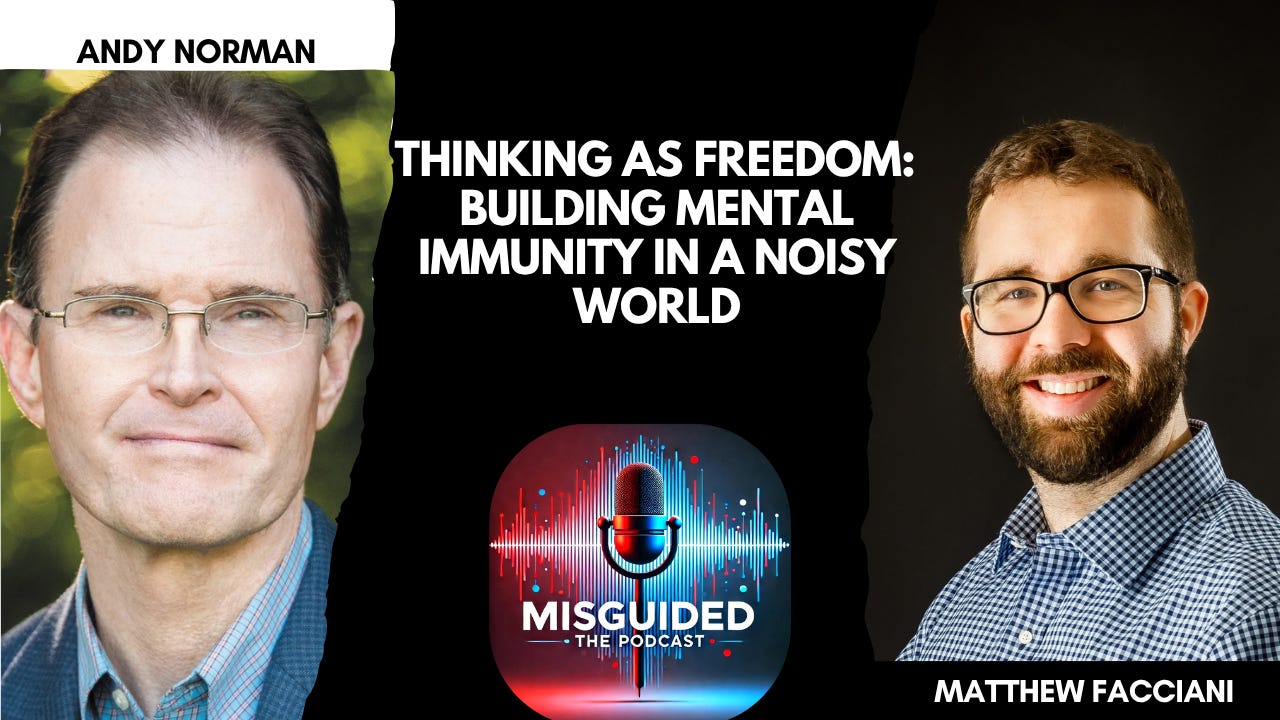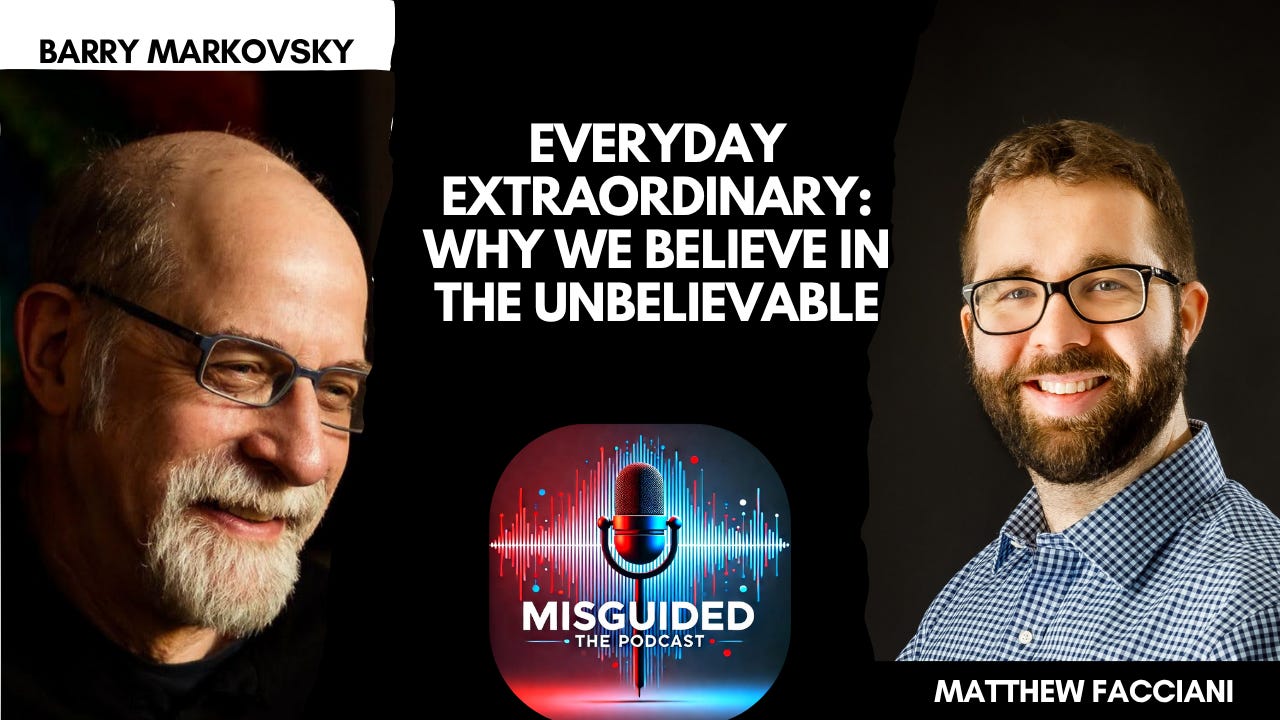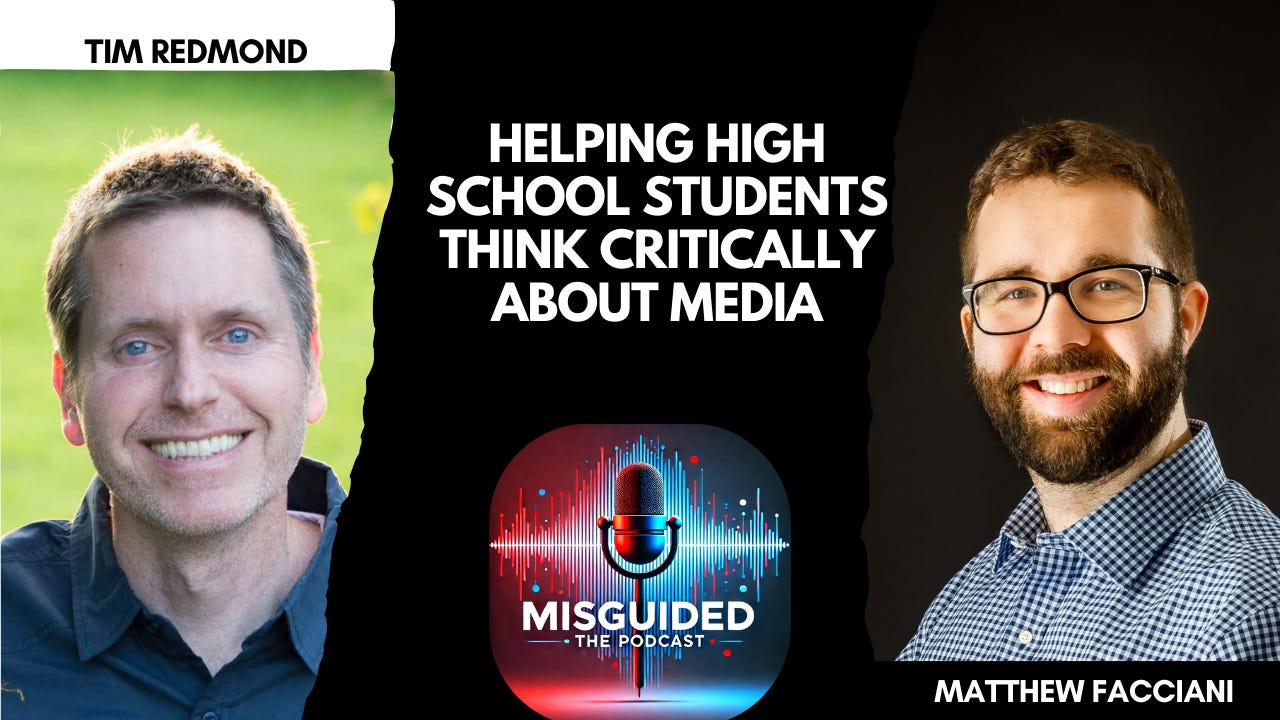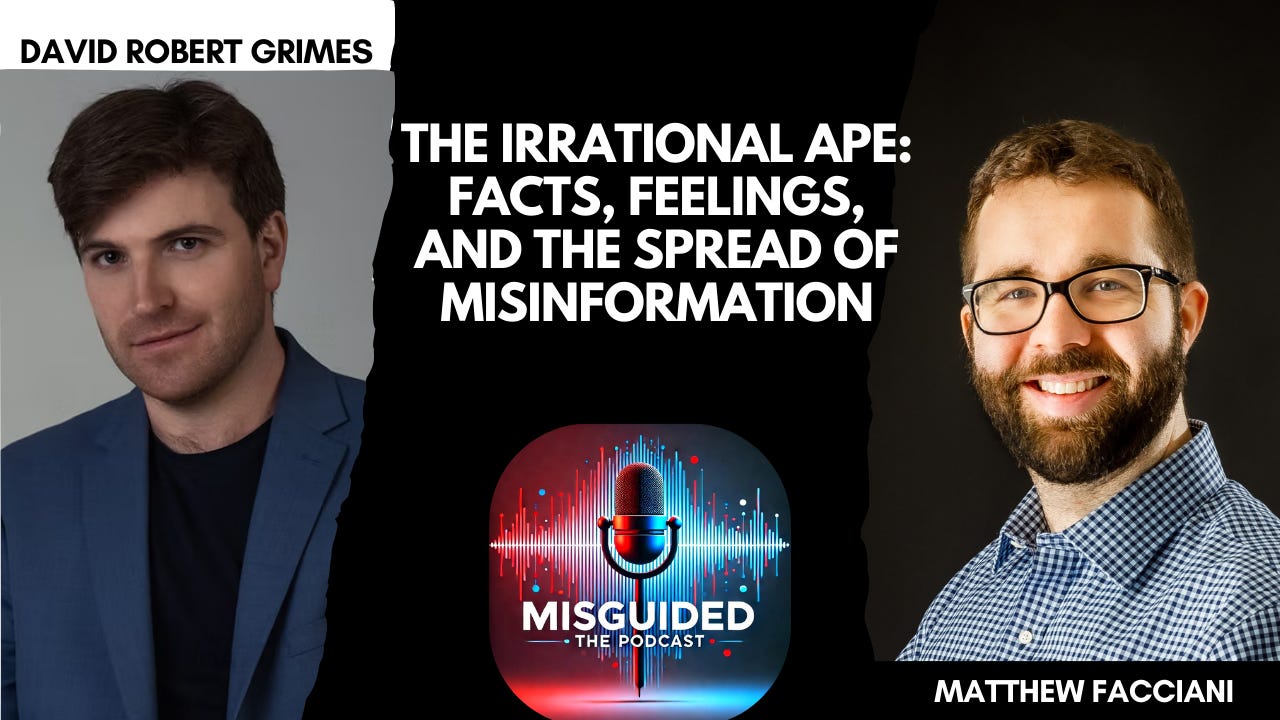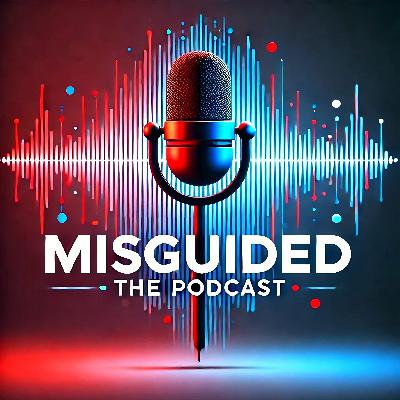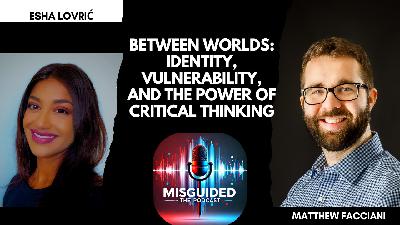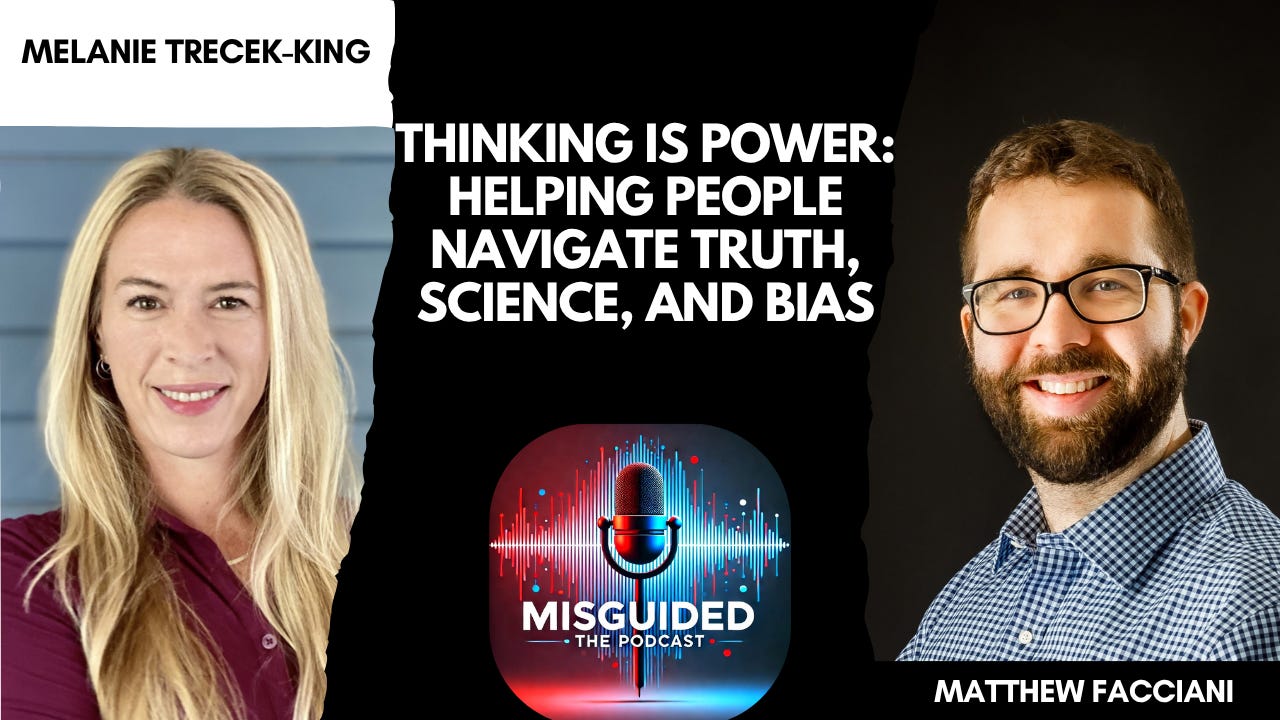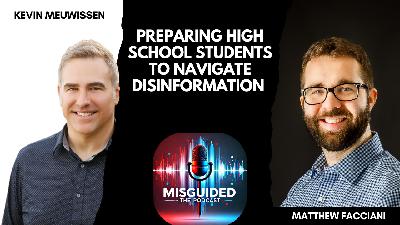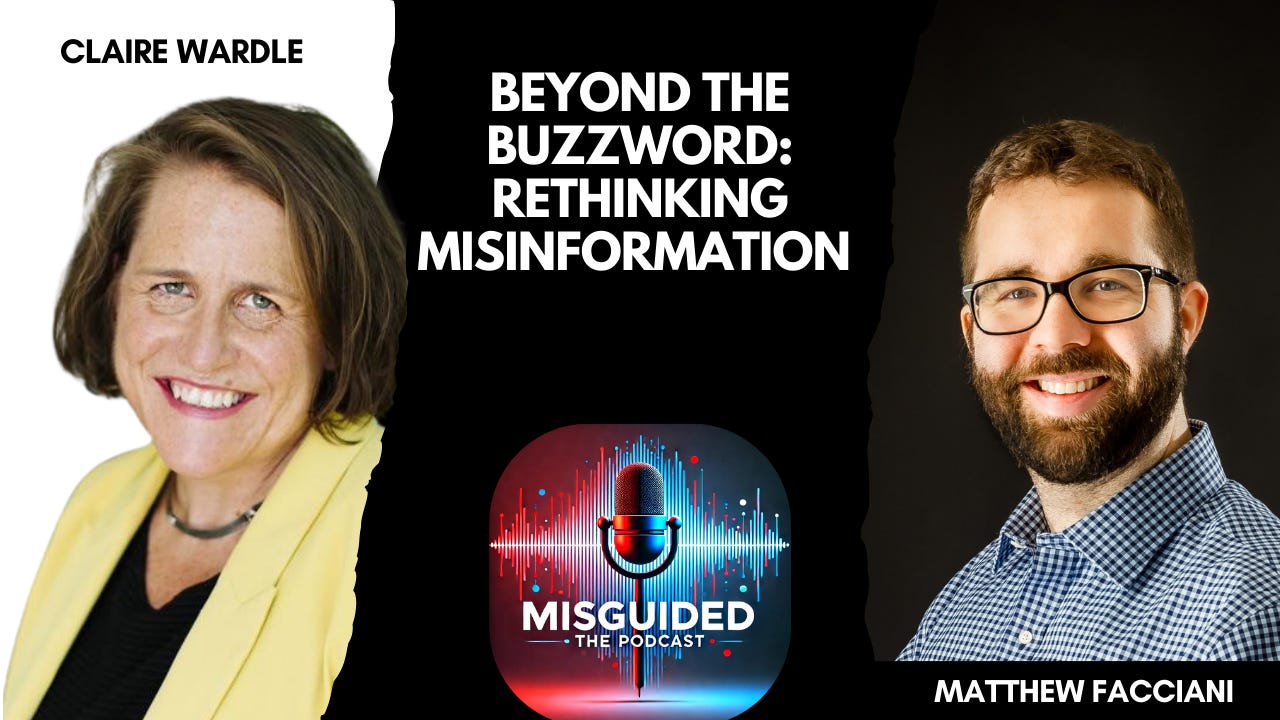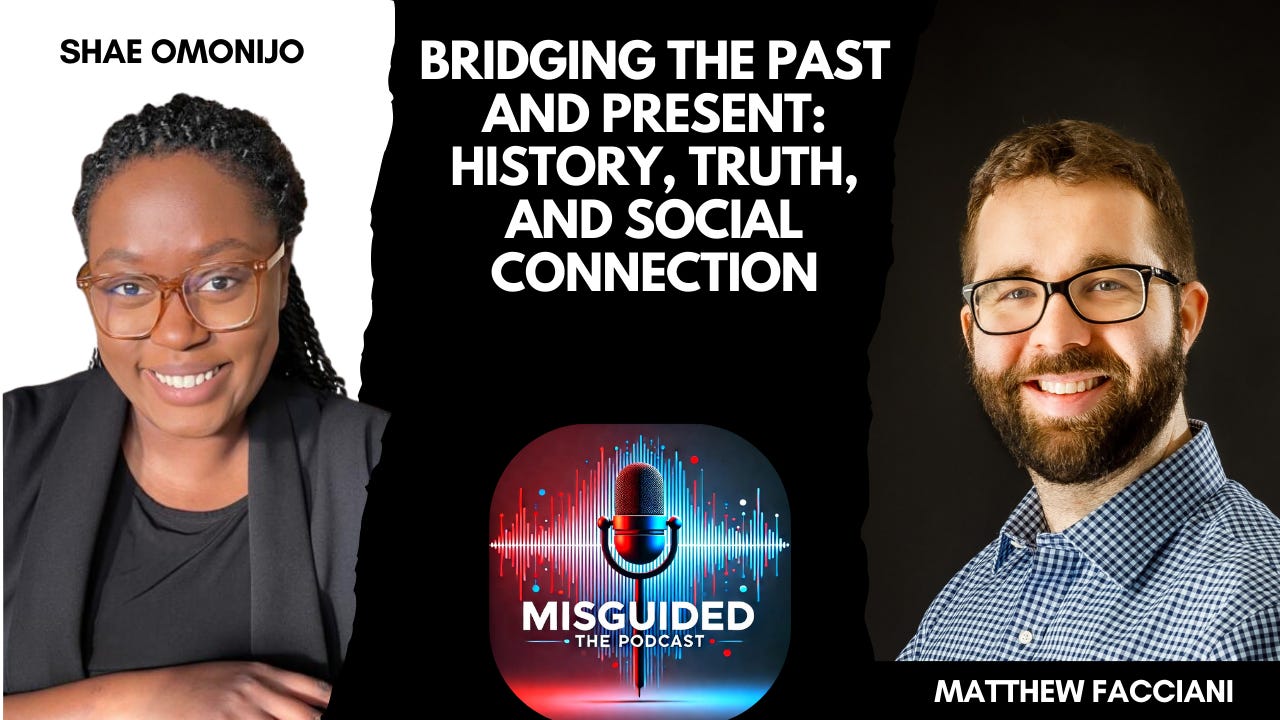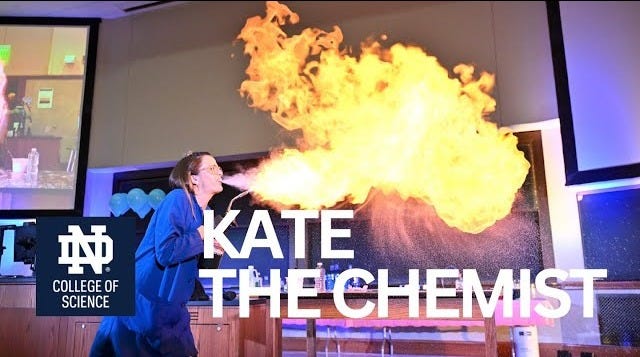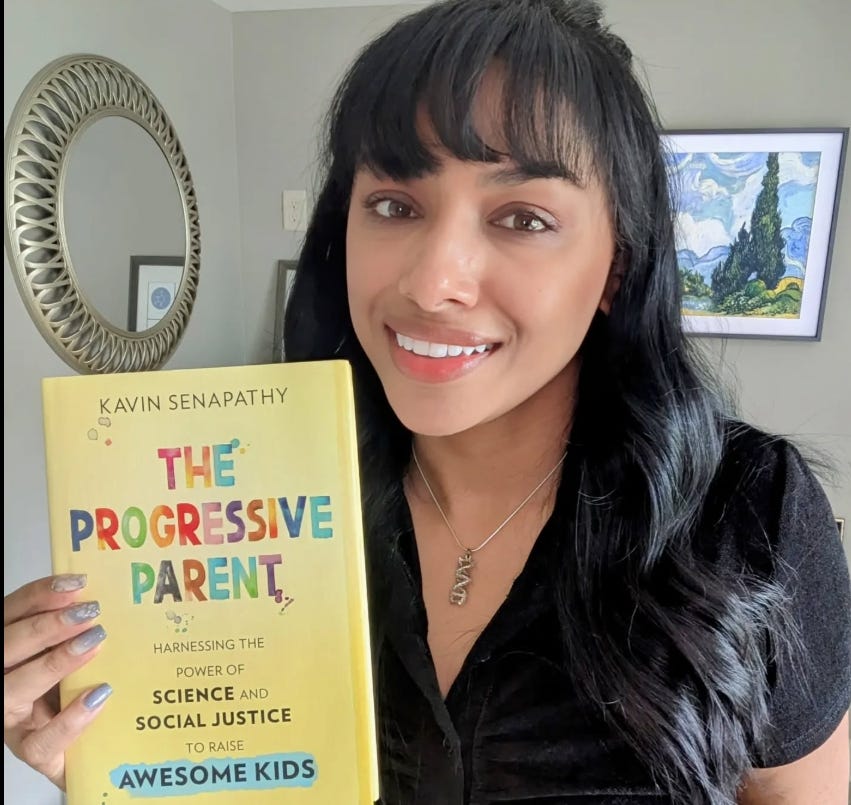Attack from Within: Rebuilding Trust in an Age of Misinformation
Description
Summary
In the first episode of Misguided: The Podcast, host Matthew Facciani speaks with legal analyst and professor Barbara McQuade about the rise of misinformation and disinformation in the modern media landscape. They examine how technology accelerates the spread of false information, the erosion of public trust in institutions, and the role of transparency and community engagement in rebuilding that trust. McQuade highlights the need for both systemic reforms and individual action, emphasizing education and digital literacy as key tools for combating misinformation. The conversation ends on a hopeful note, recognizing the potential of younger generations to reshape the digital information space.
Barbara McQuade’s new book: Attack from Within: How Disinformation Is Sabotaging America.
Barbara McQuade on Threads and Bluesky
Keywords
misinformation, disinformation, media evolution, public trust, social media, community engagement, digital literacy, government transparency, combating misinformation, critical thinking, Barbara McQuade
Chapters
00:00 The Evolution of Media and Information
03:46 Misinformation in the Digital Age
05:57 Trust in Institutions and Public Confidence
10:01 Restoring Trust: Transparency and Local Engagement
12:39 The Role of Community and Local Media
16:22 Systemic Solutions to Combat Misinformation
19:22 Individual Actions Against Misinformation
24:22 Hope for the Future: The Next Generation
Transcript
Matthew Facciani (00:19 )
Welcome everyone to Misguided the Podcast. I'm your host, Matthew Facciani.
I'm a social scientist studying how social and psychological forces shape our understanding of the world. On this show, we explore the latest insights from social science to uncover why we believe what we do, how misinformation spreads, and how we can think more critically. I'll share my own research and engage in thought-provoking conversations with experts from diverse fields, scholars, journalists, technologists, and more to examine the ever-evolving information landscape.
This podcast was inspired by my book, Misguided, where misinformation starts, how it spreads, and what to do about it, but it goes beyond those pages. Here, we dive deeper into the complex forces shaping our beliefs and decision making, exploring new ideas and perspectives in every episode.
Matthew Facciani (01:10 )
If you're curious about the psychology of misinformation, the influence of social media,
or how to navigate today's complex media environment, in the right place. Before we dive into today's conversation, let me introduce you to my guest, Barbara McQuade. She's a professor at the University of Michigan Law School, legal analyst, and former US attorney for the Eastern District of Michigan. You may also recognize her as a legal analyst for NBC News and MSNBC, co-host of Sisters in Law podcast, and a contributor to the Contrarian Newsletter.
She's the author of Attack From Within, How Disinformation is Sabotaging America, a book that examines how the evolving media landscape and the rapid spread of misinformation are eroding public trust and institutions and what we can do about it. In today's episode, we'll discuss how misinformation and disinformation thrive in the modern media environment, the legal and societal consequences, and practical steps we could take to build a more informed society. I'm thrilled to have Barbara on the show, let's get into it.
Matthew Facciani (02:14 )
before diving into the topic of misinformation and disinformation, I'd love to hear about your journey through the evolution of the information environment. So in your book, you mentioned interning with one of the very first online news companies back in the late 80s, which I found really fascinating. And then over the 90s and 2000s, you've done a lot of interviews on television and various media platforms. And now most recently, I know you
host your own podcast, Sisters in Law, and you've even joined this new subsack newsletter, The Contrarian. So I'd like to ask you from a big picture, how have you seen this media landscape evolve and what insights can you share about navigating these changes?
Barb (02:58 )
Yeah, I think for me the evolution has been from maybe more care for accuracy and thoughtfulness into prioritizing urgency and speed. And that's something I first saw when I worked for this company. It was called Dow Jones News Retrieval. In the mid-80s, it was a summer internship. And at the time, you the idea that people would use their computers to receive news seemed kind of far-fetched. The goal was to...
provide news, world news, political news, US news, all kinds of news, that people who were investors would find valuable. And so they would pay for that resource to get up to the minute most accurate, timely, urgent information that they could use to inform their investment decisions. it comes at the expense of taking the time to think through things, of writing a longer piece that could provide more
content and nuance to things. And so, you know, that and then, you know, today's world of news received via the internet, I saw that evolution even as I worked in the U.S. Attorney's Office where we would get requests for comment on a story. And we might say, you know, when's your deadline? And they'd say, you know, 10 p.m. or something like that. And you'd have all day to kind of think through what are the stakes here? Who are the stakeholders? We have victims.
Will a comment in any way harm them? Are there other ongoing aspects of this investigation that could be harmed if we speak? Are there fair trial rights of a defendant that could be affected if we were to comment on this thing? We need to talk to other stakeholders, other investigative agencies. And so, by the end of the day, we were either able to say, I'm sorry, we can't comment, or to provide something valuable to provide context and information for readers. Now...
by the end of the time I served as U.S. attorney, you would get a message saying, would you like to comment our stories going live in 10 minutes? And you'd can't get you a comment that quickly. They say, all well, we'll get it in the next round. And so there's this urgency to get an answer. And then the first version of the story did not contain your response. And so that might fly around the internet without any response from you. So I saw this evolution. And I think my move to podcasting,
and to the contrarian is an effort to get away from that fast and short is better model. I understand it has a place in society. People need to know breaking news when it happens, but just because something is new does not mean it is important. And so I hope that my work in my podcast, Sisters in Law and with the contrarian gives me space to spend a little more time on substance so that people can think about
news and not just react to it.
Matthew Facciani (05:46 )
Yeah, yeah, that's a great point. that connects to my next question. So connecting this to misinformation. So how have those experiences in this evolving media landscape affected your thoughts on misinformation and then how misinformation can spread through these newer forms of media? And what can we do to kind of counteract that?
Barb (06:04 )
So I think that speed and that expectation of instantaneous news fosters a home for disinformation and misinformation. And just to clarify how I use those two terms, I use disinformation to mean the deliberate use of lies to advance some sort of agenda and misinformation, sort of its unwitting cousin, know, somebody who reads something they believe to be false and then shares it online, further advancing that false claim, but they do so innocently without realizing.
that the claim is false. But technology now allows people to send any content, unedited, unreviewed by any sort of gatekeeper, across the world to reach millions of people in an instant, and we can do so anonymously. And so that really opens the floodgates for disinformation. And as we've seen, there are people out there who will exploit that. The Russian Internet Research Agency in 2016, by creating false personas online of
purportedly American users saying all kinds of things to sow discord and undermine public confidence in the elections and disparage candidates to just this election cycle when we saw a Russian group using artificial intelligence to create fake web pages that look like the Washington Post or Fox News and then fill those pages with false content that advanced Russian interests, know, undermining Ukraine in the war and sharing its views in the presidential race.
So the technology, I think, is really facilitating and driving that urgency. But I think one of the collateral consequences is that it really is sort of a petri dish where disinformation can really grow and thrive.
Matthew Facciani (07:47 )
Yeah, yeah, absolutely. The speed and the scale that miss and disinformation can be achieved today is really staggering.
It can be really overwhelming when you look at the Internet and you see so much stuff, this information overload, and a lot of that connects to erosion and trust in what we see online and just erosion and trust in general. that c

